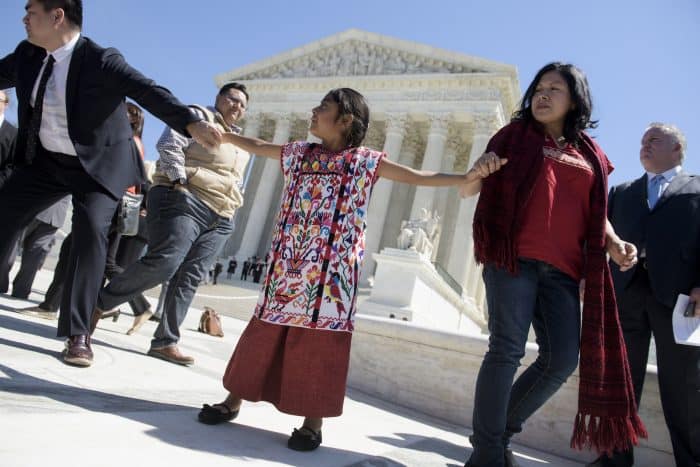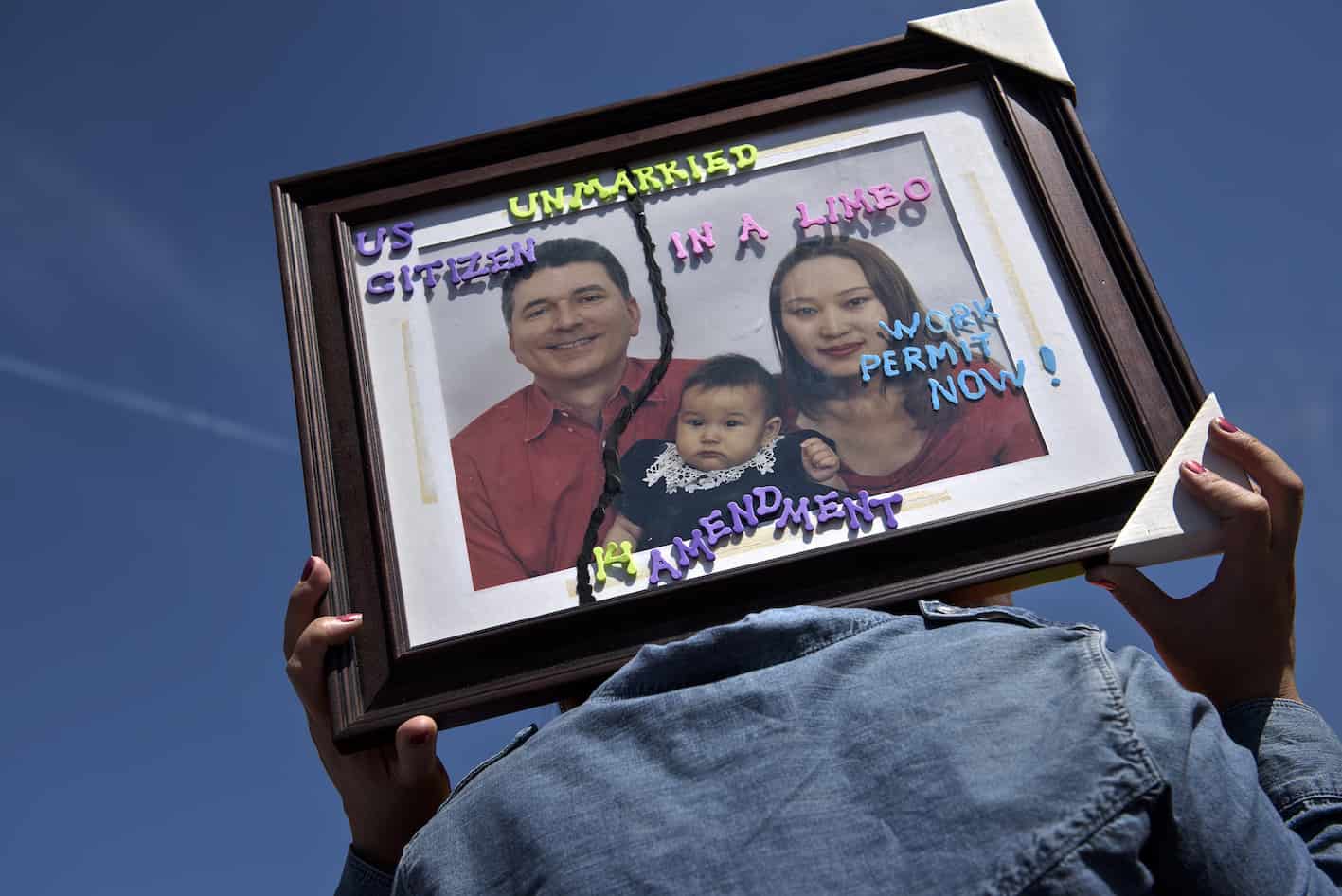WASHINGTON — The U.S. Supreme Court appeared closely divided Monday as it weighed President Barack Obama’s plan to shield nearly half of the nation’s 11 million undocumented immigrants from deportation.
If the eight justices deadlock in their ruling, due by late June, it will keep intact a lower court block on the plan, dealing a bruising defeat to Obama during his last year in office and pushing the issue to the next president.
Hundreds of immigrant rights activists massed outside in the blazing sunshine as the high-profile hearing got underway, brandishing heart-shaped signs reading “Keep families together” and “Si se puede” — putting a Spanish twist on Obama’s 2008 campaign slogan “Yes We Can.”
Chief Justice John Roberts and Justice Anthony Kennedy, two conservatives whose support is critical in this case, sparred repeatedly with the Obama administration’s attorney during an extended 90-minute session of oral arguments.
At stake is a series of executive actions the president took in November 2014 to bypass a Republican-held Congress with which he was unable to enact a promised reform of America’s immigration system.
One initiative shields from deportation people who have lived in the United States since 2010, with children who are U.S. citizens or lawful residents. Another protects immigrants who entered the country as children.
The four liberal-leaning justices appeared to defend Obama’s plan and pointed to similar past actions by his predecessors.
But critics accuse Obama of overstepping his authority, a view that appeared to find an echo among the conservative justices on the Supreme Court bench.
Kennedy said it was a “legislative task, not an executive task” to determine which group of immigrants could lawfully stay in the United States.
“It’s as if the president is defining the policy and the Congress is executing it,” Kennedy said. “That’s just upside down.”
Roberts, who has insisted the Supreme Court should stand above the political fray, is likely to focus on whether Texas and 25 other mostly Republican-led states have substantial enough injury as a result of Obama’s actions to have the standing to sue the federal government.
Such a narrow ruling would allow the court to eschew a decision on more fundamental aspects of the immigration debate — an immensely divisive issue at the heart of the 2016 presidential campaign.

Queuing to witness history
People queued around the block for a chance at a coveted seat in the cavernous marble courtroom, while around 500 protesters rallied outside — bouncing to the sound of Mexican Mariachi bands.
Republican White House frontrunner Donald Trump has sharpened the fault lines on immigration by vowing to build a wall along the Mexican border, and deport all 11 million or so undocumented migrants living in the United States.
“Today is an incredibly important day at the Supreme Court. The fate of millions of immigrants and their families is at stake,” tweeted Jorge Ramos, the country’s best-known Spanish-speaking news anchor, who has clashed publicly with Trump on the issue.
In all, nearly five million immigrants would be protected from deportation under the Obama policy.
Texas claims it would cost the state millions of dollars in public funds to provide driver’s licenses to the huge group of immigrants who would be allowed to stay in the United States.
“I just think that’s a real Catch-22,” said Roberts, the chief justice, of the notion that Texas could be sued by the federal government for failing to grant such licenses — but would not be able to sue the government over licence policy.
Sonia Sotomayor, the court’s first Hispanic justice and the daughter of Puerto Rican-born parents, noted that if Texas is allowed to sue the government on immigration, that would open the door for states to challenge a wide range of federal regulations with which they disagree.
America’s huge population of undocumented immigrants is “here, whether we want them or not,” she argued.






